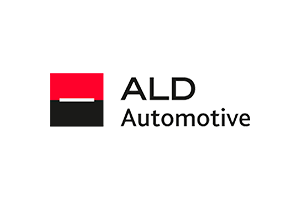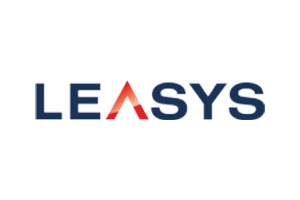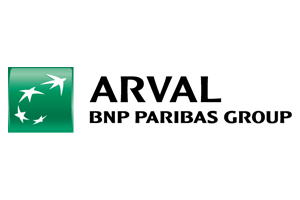Getting a new car can be a stressful experience and we know that one of the most complicated parts is deciding on how to finance it. There are several ways that you might choose from including:
- Purchasing the car outright
- Getting a loan to purchase the car
- A PCH agreement
- A PCP agreement
- Renting a vehicle
In this article we’re going to focus on PCP and PCH as these can often be clumped together, but there are some important differences between the two that you should be aware of, especially in light of the recent news about PCP interest rates.
What is a PCH?
PCH is the acronym for Personal Contract Hire, which is a personal lease agreement.
Leasing is essentially a long-term rental where you agree to set terms including the contract length, mileage allowance, maintenance package as well as the specific vehicle you drive. The price will be a fixed monthly cost for the contract length and you are committed to this for the duration.
To learn more about PCH why not take a look at our guide to personal leasing or our range of leasing guides that should answer any questions you might have.
Benefits of PCH
There are many benefits to personal leasing including:
- Great offers available on top models
- No worries about the vehicle depreciating
- Being able to update your car every few years without the hassle of buying and selling
- A fixed low monthly cost
- Option to include maintenance packages
Leasing offers many drivers the opportunity to get behind the wheel of a brand new car that’s a higher spec than they might have been able to afford if buying it outright, especially with the great deals (that can be achieved.
Drawbacks of PCH
Although we know there’s many benefits to personal leasing there are a few aspects you’ll need to consider when deciding if it’s right for you.
The first of which is that you will not own the car and will have to hand it back at the end of the agreement. If car ownership is important to you then leasing is unlikely to be the right finance option. Additionally, as you do not own the car there are a few circumstances where you’ll need to request additional documentation from the funder, as they hold the V5 and are the legal owner (and keeper) of the car. For example, if you want to travel abroad in the car then you’ll need a VE103 which will need to be requested in plenty of time before travel, and will usually have an associated admin fee.
As you don’t own the car you will need to hand it back to the funder at the end of the contract, and it will need to be in a condition in line with the BVRLA’s fair wear and tear guidelines. This should not be a problem for most drivers as the guidelines are designed to be fair to drivers and the funder but if you are particularly hard wearing on your vehicle, for example if you often transport heavy or dirty cargo then it may impact your decision on whether to lease.
Other things to consider include:
- You will have a mileage allowance and if you exceed this then you will be charged for any excess mileage
- You will need fully comprehensive insurance (most funders will have this as a stipulation of your contract) so need to factor this into your budget
What is a PCP?
A PCP agreement is a personal contract purchase agreement which is a financial contract for the purchase of a vehicle. However, unlike a loan there are a few options available for you at the end of the agreement;
- You can return the car to the finance company
- You can pay the resale value and keep the car
- You can use the resale value towards getting a new car
- Some funders will also offer the option of extending and refinancing the agreement on that vehicle
You’ll pay a deposit and then a set monthly fee, with a pre-agreed balloon payment at the end of the contract if you decide to purchase the car.
Benefits of PCP
The biggest benefit of PCP is the range of options available to you at the end of the agreement with the option to purchase the car to keep or to return it and take out another contract on a new car.
Another big benefit is that the balloon payment amount is set at the start of your agreement. This means that if you want to buy the car you have a fixed figure to budget for, and with the volatility of the used market at the minute this is good thing.
Other benefits include:
- Optional maintenance packages
- If you decide to hand the car back there’s no depreciation concerns
- Fixed monthly payments
Drawbacks of PCP
As you’re paying for the cost of the car the monthly payments will often be higher than if you were leasing. And, alongside your monthly payments you will have to budget for the balloon payment at the end of your agreement. Whilst this is a fixed figure it is an additional cost that most will need to add into their monthly budget to set aside some money for it.
Just like with a lease you’ll need to consider:
- You will have a mileage allowance and if you exceed this then you will be charged for any excess mileage
- You will need fully comprehensive insurance (most funders will have this as a stipulation of your contract) so need to factor this into your budget
- There are fair wear and tear guidelines for the condition of the vehicle on return and there may be charges if the car doesn’t meet these and you decide not to buy it
What’s the Difference Between a PCP and a PCH?
The main difference between a PCP and a PCH is the options available at the end of the contract. If you’re looking for car ownership then this is an option with PCP but not PCH.
Another significant difference is often the price. As you’re paying for the amount the vehicle is depreciating by in a lease and not the vehicle itself the cost to lease is often lower than a PCP agreement.
Should I get a PCP or PCH?
The best option for you will entirely depend on your individual circumstances and needs. But to help you decide we’ve got four questions you should ask yourself:
- Do you want to own the car?
- Will the way you plan to use the vehicle cause significant wear and tear?
- Is the option of buying the vehicle more important than a lower monthly cost?
- Can you budget for a balloon payment as well as the regular monthly payments?
If you answered mostly yes then a PCP is likely to be the better product for you. If you answered mostly no then we think a PCH will be better. But if you want to discuss it further or have any questions about PCH then get in touch with us on 0330 221 0000.
Enjoyed this article? Read more of our latest blogs below:
- Best SUVs for 2024
- Are Brands Important for EVs?
- Best Hatchbacks of 2024
- Will Lease Prices Go Down in 2024
Want to know more about car leasing?
For all our latest news and blogs click HERE.
Looking for the next best car leasing deal? Check out our Top Leasing Deals.
Or do you need to know more about leasing? Check out our Guide Pages.









Leave a Comment